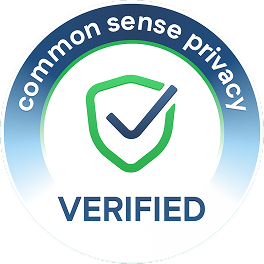Take a look inside 8 images
Prodigy English
Pros: Some teacher controls and custom assessment options.
Cons: Learning content can feel like a side note; premium paid options may create inequities.
Bottom Line: This virtual world will capture kids' attention and give them a bit of practice with ELA concepts.
It's important to consider how to handle the imbalance in perks and upgrades between students who play on Prodigy English free accounts and those whose families choose to upgrade. This can cause an inequitable experience. Ideally, teachers and schools should find a way for all kids to have premium accounts so that students are on an equal playing field (and don't encounter the distracting ads for a premium upgrade). If this isn't an option, it'd be best to have parents agree to use free accounts.
Teachers can easily choose exactly what ELA content students will work on, either on a class level or for individual students. Beyond that, in terms of versatility, one of the nice things about Prodigy English is how relatively easy it is to implement for students working at home or at school. Since it differentiates well and features good in-game instruction, students can be off working at different grade levels and at their own pace, not worrying about anyone but the teacher knowing what they're working on. However, since Prodigy English is focused mostly on practicing skills, it's best used as a review tool rather than a means to introduce new topics.
Prodigy English is a fantasy game that reviews English language and reading comprehension based on first through fifth grade Common Core ELA standards. Students explore a virtual village where their avatar gathers supplies, builds things, and buys and sells in virtual marketplaces. To do all this work, the avatar needs energy, which students can replenish by answering multiple-choice questions about English language and reading comprehension. The questions adapt to kids' skill level, and as kids answer questions correctly and complete tasks in their village, they earn points and wish coins. The teacher dashboard is full of customization options, including detailed progress reports and a choice of which specific Common Core standards will be covered in the questions presented.
Prodigy English is from the same developer as Prodigy Math. Both are available with the same login credentials, though at the time of review, Prodigy English is web-based only. As with Prodigy Math, access to the game and all the learning content is free, and students can play at school or at home. But students can level up more quickly and get more perks if they have a paid subscription, which their parents can purchase through the home version. And although the sign-in information is shared with Prodigy Math, subscriptions to each are sold separately.
As a whole, Prodigy English is a fun platform that will appeal to students and also has some value for ELA review and practice. Teachers familiar with the strengths and shortcomings or Prodigy Math will find much of the same in Prodigy English. In short, the gaming aspect is right on for the target age range. Prodigy English focuses on creative building and accomplishing missions rather than on battling, and there's no option to play with peers. Because learning content adapts based on performance and students guide their own play, the experience feels nicely personalized. And there are detailed teacher controls that allow for super-fine focus on particular concepts.
Yet, just like Prodigy Math, the gaming aspect offers so much to explore and the learning content is so much a side note that it all risks being more of a game than a learning tool. There are some limited in-game learning supports such as definitions of new vocabulary words and grammar terms. It's nice that students can change their response when they answer incorrectly, but because they can do so easily and still get "credit," there's little motivation for them to make an effort to pay attention and choose the right answer. Overall, these multiple-choice ELA questions are best for review and practice, and come with little feedback. Most of all, they feel like annoying interludes that students have to get through in order to get back to playing the game. Just as with Prodigy Math, it's easy for students to spend their time in their virtual village rather than engaging with the learning content in any kind of meaningful way. And there's still an issue with paid memberships. Some students may get perks that others won't, which sets up inequity in experiences.


















